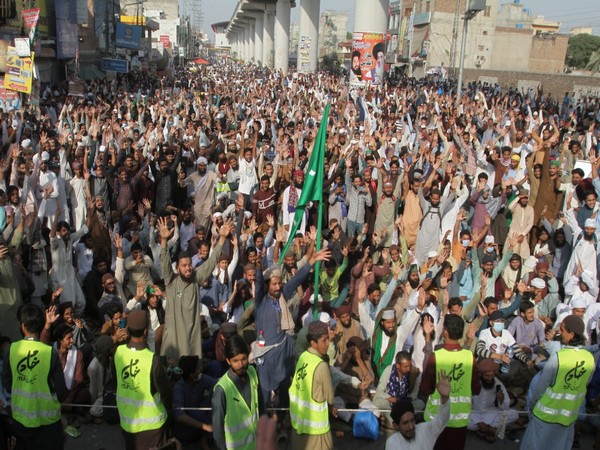Government Faces Pressure Amid TLP's Persistent Protests at Faizabad Interchange
After a brief hiatus, negotiations between Tehreek-i-Labbaik Pakistan (TLP) and Islamabad authorities resumed as protests at the Rawalpindi-Islamabad intersection continued, causing severe disruptions. TLP's demands, including aid to Gaza and boycotting Israeli products, remain unmet, highlighting the complex interplay of religion, politics, and geopolitics in Pakistan.

- Country:
- Pakistan
After a two-day hiatus, negotiations between Tehreek-i-Labbaik Pakistan (TLP) and the Islamabad district administration resumed Friday, with protests causing severe disruptions at the main intersection between Rawalpindi and Islamabad, reported Dawn. The ongoing demonstrations have led to significant traffic congestion, impacting daily life and business activities in both cities. TLP remains steadfast in its demands.
Government officials, including Pakistan Information Minister Attaullah Tarar and Prime Minister's advisor on Political Affairs Rana Sanaullah, aim to resolve the impasse peacefully to prevent wider chaos. According to the report, TLP leader Hafiz Saad Rizvi's demands include sending aid to Gaza, declaring Israeli PM Netanyahu a terrorist, and boycotting Israeli products. The government finds these demands "unrealistic," noting Pakistan already does not recognize Israel.
Tehreek-e-Labbaik Pakistan, a far-right Islamic political party, is known for its firm stance on religious issues and anti-Israel sentiment. The party's influence in Pakistani politics has grown by positioning itself as a defender of Islam, resonating with conservative and religiously inclined segments of society. Notably, in 2017, TLP's sit-in at the Faizabad interchange paralyzed the capital, demanding stricter enforcement of blasphemy laws.
In 2021, TLP supporters clashed with police following the arrest of their leader, Saad Rizvi, leading to injuries, property damage, and widespread disruption. Over the years, the party has effectively mobilized public demonstrations against Israel, framing the Israeli-Palestinian conflict within religious and ideological contexts.
With tensions persisting at Faizabad interchange, the Pakistani government faces increasing pressure to address these demands amid broader geopolitical complexities and domestic unrest, highlighting the nuanced interplay between religion, politics, and international relations in the region.
(With inputs from agencies.)










